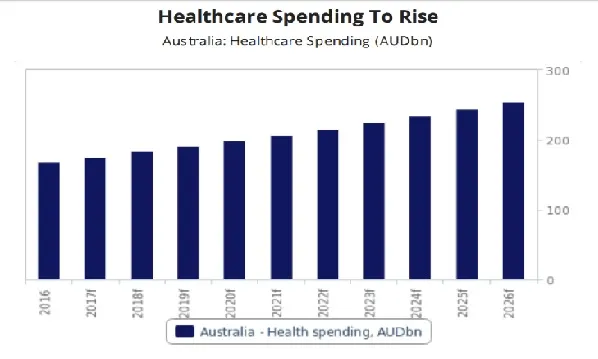
Australia's government to invest US$7.42b on national health plan
The amount will be shelled out over a span of four years.
Highlighting the Australian government's commitment to balancing economic policy with health priorities, the budget for 2017-2018 supports the Long-Term
National Health Plan based on four pillars: guaranteeing Medicare and the Pharmaceutical Benefits Scheme; supporting community pharmacies; prioritising mental and preventive healthcare; and investing in medical research. However, the government is likely to face challenges in healthcare spending over the coming years as the population ages.
The Australian government is set to invest AUD10bn (USD7.42bn) over four years, supporting the Long-Term National Health Plan and consequently the country's healthcare sector as a whole.
Here's more from BMI Research:
The FY2017/18 budget highlights targeted investment decisions with a focus on high-value clinical care, the promotion of good health and collaborating with the health sector in order to build a holistic and integrated healthcare system. The key areas of focus will be guaranteeing and strengthening Medicare in order to provide access to timely and affordable healthcare and medicines; investing in medical research to improve health outcomes; and protecting the tax base to help sustainably fund essential services.
According to budget statements, in 2016-2017, AUD71.4bn (USD53.0bn) (15.8% of the budget) was allocated to the healthcare sector, which increased to AUD75.3bn (USD55.9bn) (16.2% of the budget) in the FY2017/18 budget . In 2016, healthcare spending in Australia was AUD168.9bn (USD125.3bn), and by 2021 we forecast that it will increase to AUD207.7bn (USD154.1bn).
The issue of rising out-of-pocket (OOP) costs and their impact on the ability of Australians to access needed healthcare has been undermining the universality of Medicare, thereby widening health inequalities. OOP healthcare costs comprise a considerable portion of health spending in Australia, deterring patients with long-term chronic conditions from seeking healthcare.
To reduce pressure on high OOP healthcare costs, the government has announced that the GP Medicare freeze on the indexation of bulk-billing incentives will be lifted in a phased schedule from July onwards, which will allow patients to be bulk-billed upon visiting their GPs and specialists.



















 Advertise
Advertise








